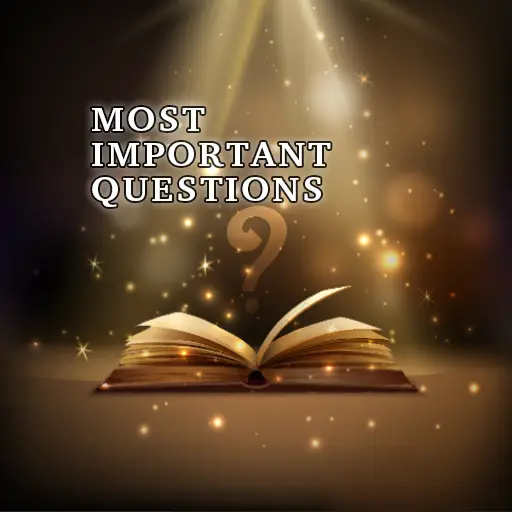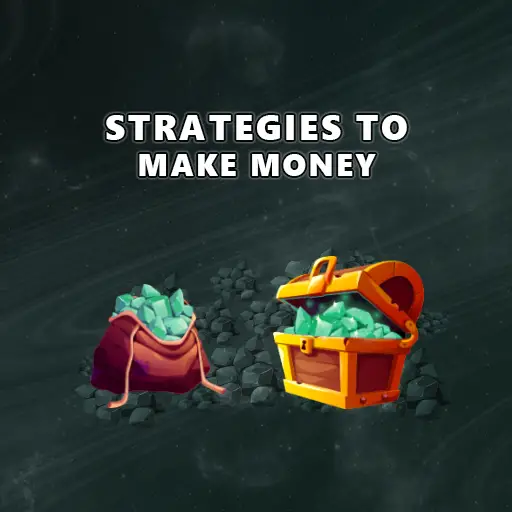Every great game starts with a good game idea. If you have been searching for a game idea but couldn’t find one, this article might help you. We will explore different methods to find inspiration and find an idea for your game. There are many sources to find a good game idea. So, how do you find a good game idea? Here are a few suggestions to help you get started.
What Makes a Good Game Idea?
The Game Should Be Interesting to You
The reason for picking an idea that you are interested in is because you have to develop the game. If it’s not interesting, there is a chance you might quit if things get tough. The other reason is that when you are interested in what you are doing, you will be more creative and make a better gaming experience for the players.
The Game Should Be Reasonable and Possible To Develop
Unreasonable demands or timelines for your project might make your project stop during development, or have many bugs because you were trying to develop something too big in a short amount of time.
The Game Should Target a Specific Audience
If you don’t know who your audience is, or your target audience is too small, who would want to buy and play your game? For every good game, there is a specific audience that will play and promote your game because they love it.
Appealing for your target audience. I suggest looking at the following metrics to assess the appeal:
- Easy to explain what the goal in the game is and how it works. Overcomplicated games will make the player quit before he gets a chance to enjoy the game.
- Balance between familiarity and originality. A game that is too familiar is boring and too original is confusing.
- Generates emotions. This is the most important aspect of the appeal. The whole point of playing games is to generate emotions in the players. The emotions could be fear in scary and dark games. It could be a sense of accomplishment when the player completes a quest. It could be the friendships he forms with other players in a multiplayer game. Whatever the emotion is, if it’s strong enough, it will keep the player in the game.
It’s OK to have a partial idea. It will evolve and improve as you develop your game.
How Do You Choose a Good Game Idea?
1. Pick a Basic Game Concept
Pick a basic game concept you like and people are familiar with. For instance, a 2D platformer, a puzzle, a city builder, a real-time strategy, a turn-based strategy, an RPG, a first-person shooter, etc.
2. Add a Twist to Your Game Concept
Add a core game mechanic. Examples of this could be a 2D platformer where the character can teleport himself to different parts of the screen, or a city builder that takes place on a remote planet where the terrain is bumpy and the requirements for a successful colony are different from earth.
3. Remove Game Mechanics
Remove a core game mechanic. For a real-time strategy, this could be the visible portion of the map is based on the current location of your soldiers. A 2D platformer might have a character that can’t jump, he can only reach other platforms by teleporting a predefined distance in a specific direction.
4. Add Specificity to the Game
A real-time strategy takes place during a war. You can use an actual war in history to base your game idea on. An RPG specifically revolving around a magic kingdom where the environment is different from a usual RPG scenery.
5. Combine Concepts and Break Expectations
You could combine first-person shooter with a turn-based strategy game. A good example of this is the classic “Might & Magic” game series. An RPG where you need to solve puzzles in certain situations or gather clues throughout the game. Check out “Puzzles and Conquest” to understand the concept.
Think of the core ideas of the game. What is the goal of the game, who are the main characters, what are the losing conditions, what obstacles the player might encounter in the world, and what can the player do to overcome these obstacles.
6. Simplify the Game Idea
Simplify your idea to match your abilities, available development time, your team, and budget. If your idea is along the lines of a turn-based 3D RPG with online multiplayer capabilities, you will probably want to rethink. Simplify the game to an isometric turn-based single-player RPG with your unique twist idea. If you got something that differentiates your game from all the others, you don’t need all the bells and whistles.
Where Can You Get Inspiration for Your Game Idea?
Your Favourite Games
Think of your favorite games you played when you were younger or in recent years. Ask yourself, why did you like them? And can they be improved or modified to make them even more attractive? I have a favorite game I played for years as a child, and my first efforts to develop a game were based on that idea. Recreating a commercial game might be too hard for a beginner, so try finding an idea you like and simplifying it.
I learned that it doesn’t matter if your first game is not that great or you don’t finish it, as long as you learn the skills you need to create a game. And with the right skill set, your next game idea will be much better.
Classic Video Games
Go back to the classics and play some of them to get inspiration. These games have stood the test of time for a good reason. They often have interesting stories, great gameplay mechanics, and unique features that can be used as a starting point for your own game development. Additionally, you can learn from the mistakes or limitations of older games and use that knowledge to improve upon them in your own game.
Market Research
Researching the current popular games on the market might spark that great idea. Among the diverse range of games available today, you’re bound to find some that catch your interest. Make a list of the games you find interesting or intriguing. If you can, either buy and play the games to experience them or find gameplay videos of people playing them on YouTube or Twitch. Researching recent games will also give you an idea of the expectations from modern games.
Movies & Books
Movies and books can be a great source of inspiration for game ideas. Many movies and books have gripping stories that could be adapted into a game. Think about how you could use the story’s plot and theme to create an engaging and immersive gameplay experience.
You could also keep an eye on interesting characters, how they develop throughout the story, and try to imagine how the character’s behavior and actions could drive the gameplay.
Finally, look for unique, interesting, or strange worlds that can serve as the setting or theme for your game. Combining multiple sources of inspiration or creating a unique twist on a familiar story can help make your game stand out, so don’t be afraid to put your own spin on the story and characters.
Game Idea Generator
If you couldn’t find an idea with all previous suggestions, you can try using a free game idea generator. The generator will spit out several parameters that will help you form a great idea for your game. For instance, I played with the game idea generator at https://letsmakeagame.net/game-idea-generator and got the following results:
- Genre: Adventure
- Rule: Build Your Way Out
- Setting: Medieval
- Theme: War
I can combine these game aspects and come up with a creative idea like: You are a traveler from the future who went back in time to change the outcome of a medieval war. But upon your arrival, your time travel device was broken. Your mission is to form relationships with leaders, eliminate key characters, and ultimately change the outcome of the war, while trying to find a way to repair the time travel device with medieval time components.
I know my idea sounds complex, but you can find a different idea and simplify it. Additionally, there is always a way to represent a complex story with simple graphics.
Final Thoughts and Suggestions
Come up with several game ideas so you can compare them against the criteria above and pick the best one. Let the ideas rest; review the ideas again tomorrow to see if you really like them. Share the idea with your friends and family to see the reaction to your idea.
I hope this article helps you find an idea or two for your next game. Remember to keep an open mind and don’t be afraid to think outside the box when looking for inspiration. Remember that coming up with a good game idea is just the first step; the real magic happens when you start turning that idea into a reality.
If you want to read more about game development, go to my Night Quest Games Blog. Good luck!
If the information in this article was helpful to you, please consider supporting this blog through a donation. Your contributions are greatly appreciated and allow me to continue maintaining and developing this blog. Thank you!
Attributions
Image by macrovector on Freepik



